The U.S. Department of Defense estimates that over 81,000 American service personnel are unaccounted for from past conflicts—about 79,000 of them from World War II. For many of these lives lost, surviving family members are still awaiting answers about the fates of their loved ones and hope to have their remains recovered and returned to the United States.
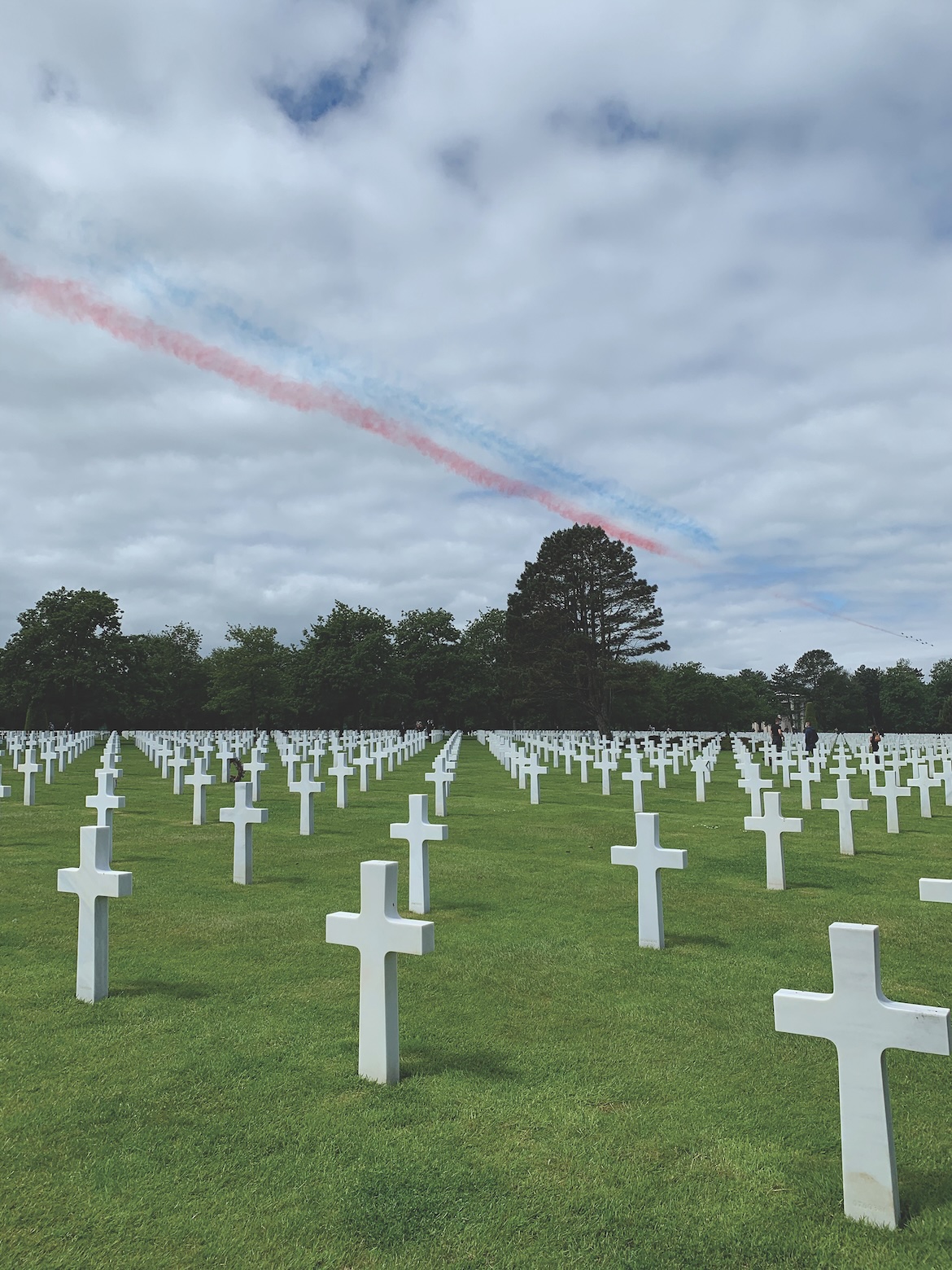
Normandy-American Cemetery
MTSU faculty and students have been contributing to this effort for the past three years, excavating at a B-17 aircraft crash site in France. Led by MTSU Research Associate Professor Tiffany Saul (’02, ’13), the Forensic Aviation Archaeology study abroad program allows students to learn forensic archaeology field methods and actively participate in efforts to recover and repatriate unaccounted-for crew members from the WWII crash.
Saul and co-director Adam Fracchia first began planning the MTSU project in 2019 as a collaboration with the Defense POW/MIA Accounting Agency (DPAA). The DPAA’s objective is providing “the fullest possible accounting for our missing personnel to their families and the nation.”
MTSU’s first partner mission was set to take place in summer 2020, with MTSU students registered to participate in the course and travel to France for a six-week field training and cultural experience. When the COVID-19 pandemic disrupted travel, educational opportunities, and everyday life, this program was no exception. The U.S. government suspended field recovery missions for the agency, and the 2020 MTSU field season was canceled.
Saul and Fracchia persevered, continuing to plan for summer 2021. Though international travel was still limited, the field project moved forward. The MTSU team, led by Saul and Fracchia, included two field assistants, then-student Cole Buffalini (’21) and alumna Tabatha Wadford (’20).
The project held special meaning for Wadford, a U.S. Army veteran.
“The opportunity to be part of the mission of bringing fallen service members home is a great honor and responsibility,” Wadford said.
“The treatment of war dead has evolved through each of the United States’ conflicts, but when I served in the Army, we made a vow to never leave a fallen comrade. This program has helped me to continue that promise for the generations that came before.”
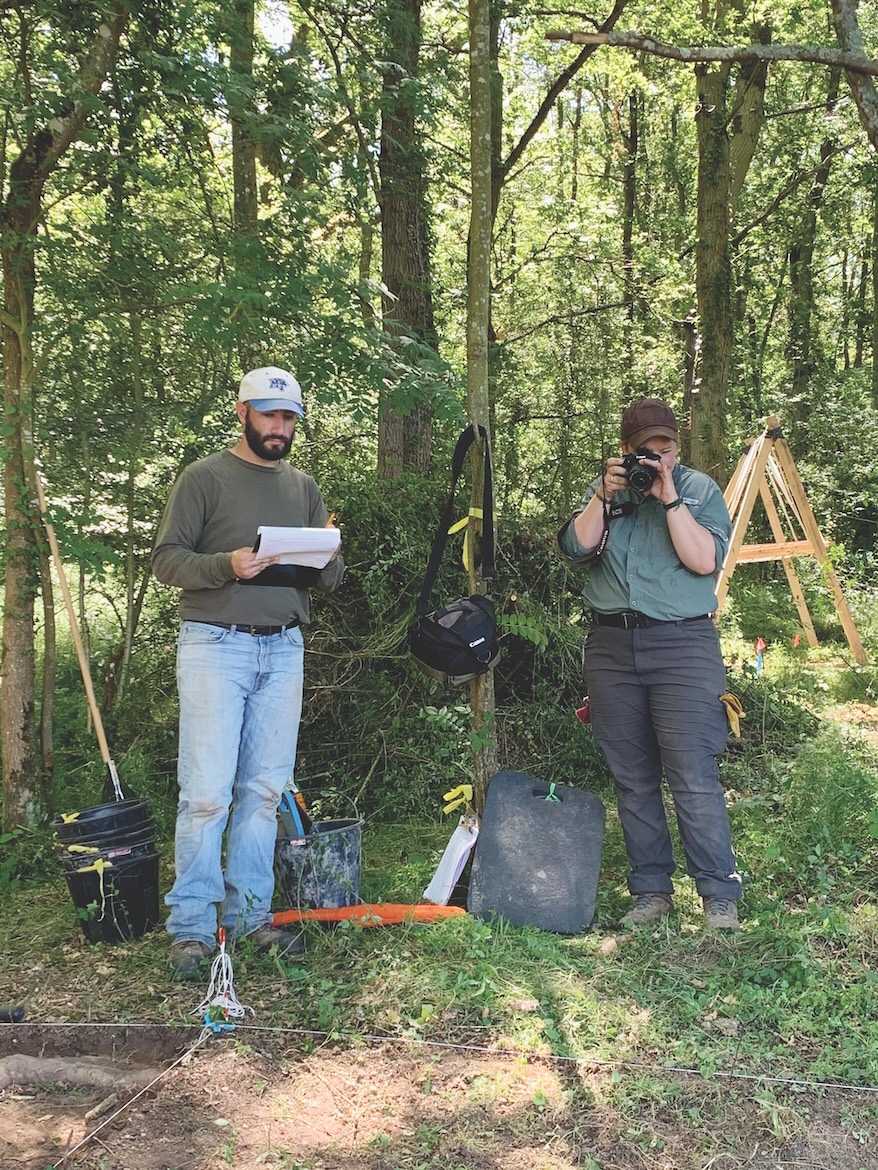
Cole Buffalini and Tabitha Wadford in 2021
The rest of the field crew was composed of international volunteers who were already in Europe, making travel to the field site possible. Volunteers from France, Spain, Switzerland, and Austria joined in the nine-week excavation.
One of those volunteers was Morgane Durieux, an archaeology graduate student from Bordeaux Montaigne University in France. Durieux followed up her time in the field as a volunteer by visiting the U.S. for the first time in spring 2022 to help prepare students for the following summer in France. She served as the project’s translator in 2022 and 2023 and continues to collaborate with MTSU students and faculty.
Once the summer 2021 season was completed, plans for the next summer immediately began. In addition to hosting Durieux’s visit to MTSU, Saul and Fracchia prepared students with basic field methods training at a local archaeology site. Students practiced mapping and excavation strategies that they would use at the recovery site later in the summer.
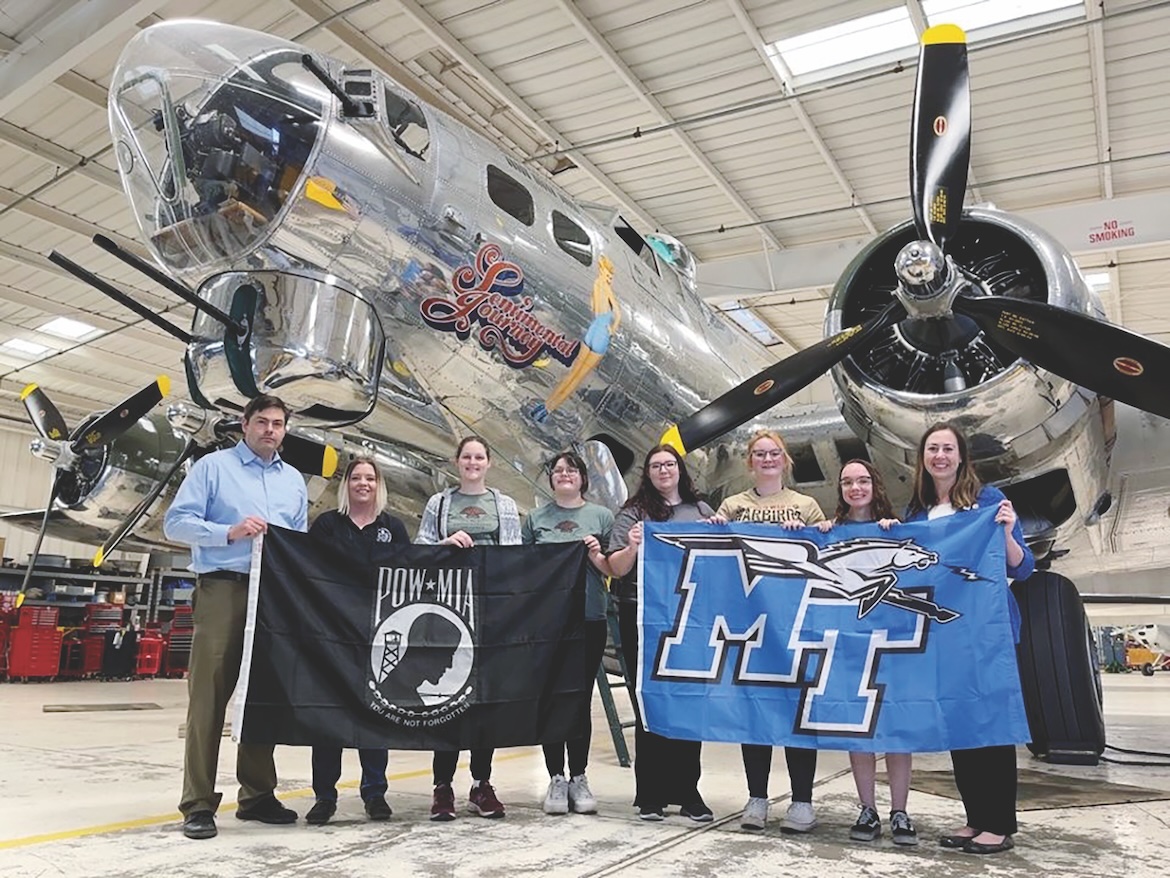
Visit to B-17 at Commemorative Air Force (CAF) Museum in Arizona in 2022
Taking Flight
In addition to these practical field methods, Saul and Fracchia felt it was important that students understand more about the aircraft they would be working with in France. They connected with the Commemorative Air Force (CAF) Museum in Mesa, Arizona, where Sentimental Journey, one of only a handful of flightworthy B-17s, is maintained. The MTSU team was invited to tour the museum and was allowed to explore the aircraft. This was a once-in-a-lifetime opportunity for many of the students and an essential perspective ahead of their fieldwork.
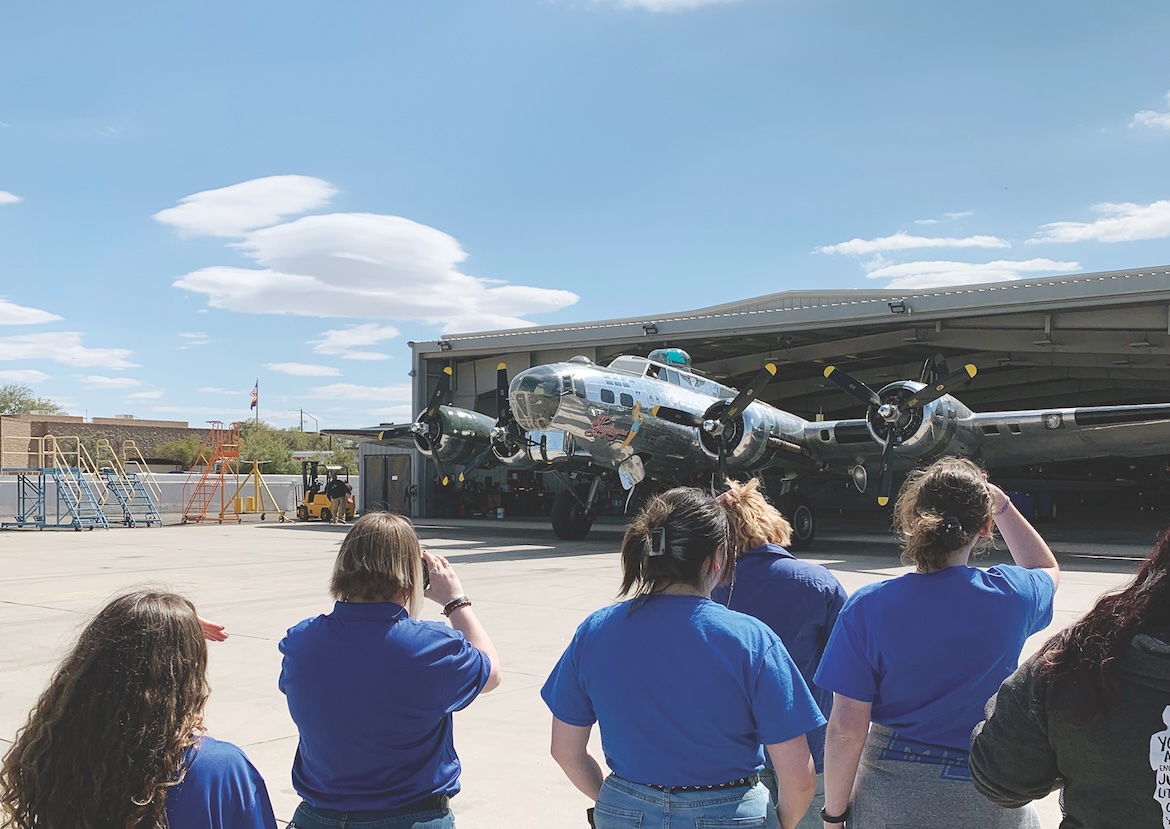
Watching B-17 at CAF Museum
Students also learned about the equipment that was used on the B-17 historically, as well as typical flight crew uniforms and rations. The CAF volunteers spent two days providing tours and demonstrations for students. The visit culminated in a public event hosted by CAF that allowed the team to share more about MTSU’s project and its goals with the Mesa community.
With training complete, the MTSU team departed the U.S. in July 2022 to join another group of international volunteers for the second field season at the site. Over the six-week program, students and volunteers lived and worked together. This unique opportunity for both professional and cultural exchange allowed MTSU students to learn more about historic archaeology from an international perspective. The field program also provided the international students with an opportunity that is uncommon in France.
“As a French student in archaeology, I’ve been confronted with the difficulty of studying World War II, especially in my field,” Durieux said. “It is still a time period that only few students and researchers are investigating, usually on their own. We don’t have any classes or any professors of modern and contemporary archaeology, for example.
“The excavations related to this period are very rare and most of the time not open to students.”
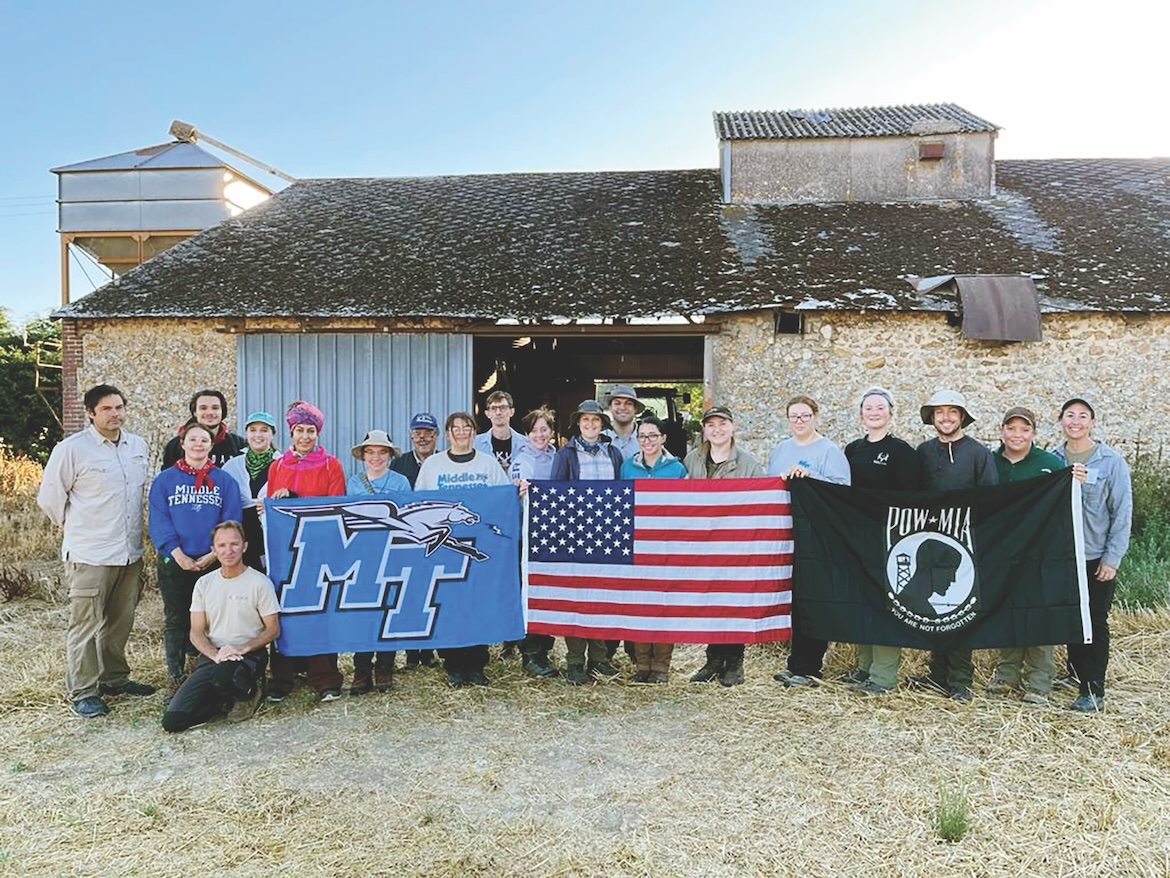
2022 field crew in France
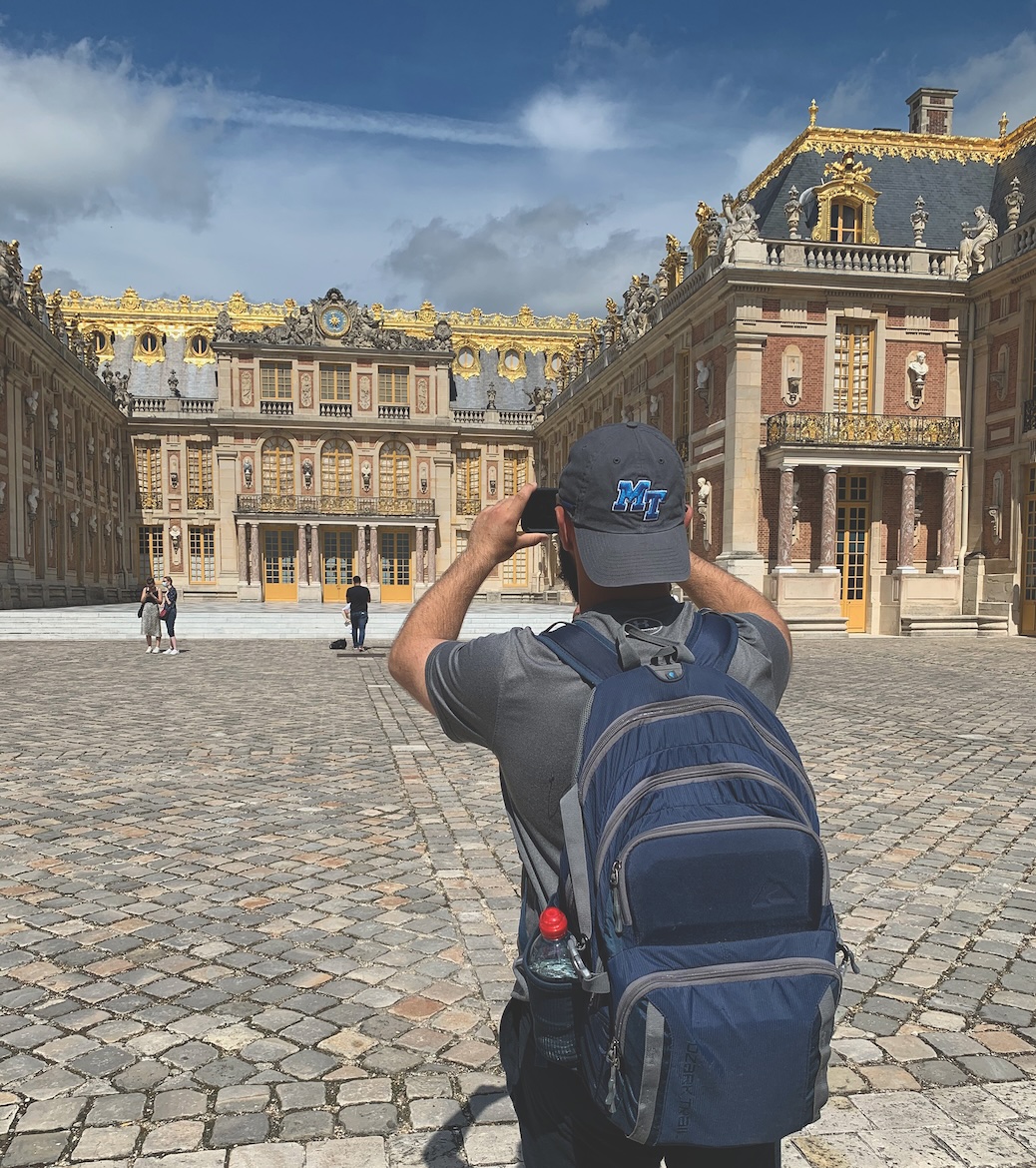
Cole Buffalini at Versailles
Experiencing France
Learning was not limited to the archaeological field. Students worked throughout the week, but the weekends were reserved for cultural engagement and excursions to nearby sites of interest. The team visited the cities of Versailles, Paris, and Chartres, where they sampled local cuisine and visited museums.
They also visited the Normandy American Cemetery and Memorial, Omaha Beach, and Pointe du Hoc. By visiting these historic places associated with World War II, the team was able to connect the events of the past with the present meaningful work of searching for unaccounted-for crew members.
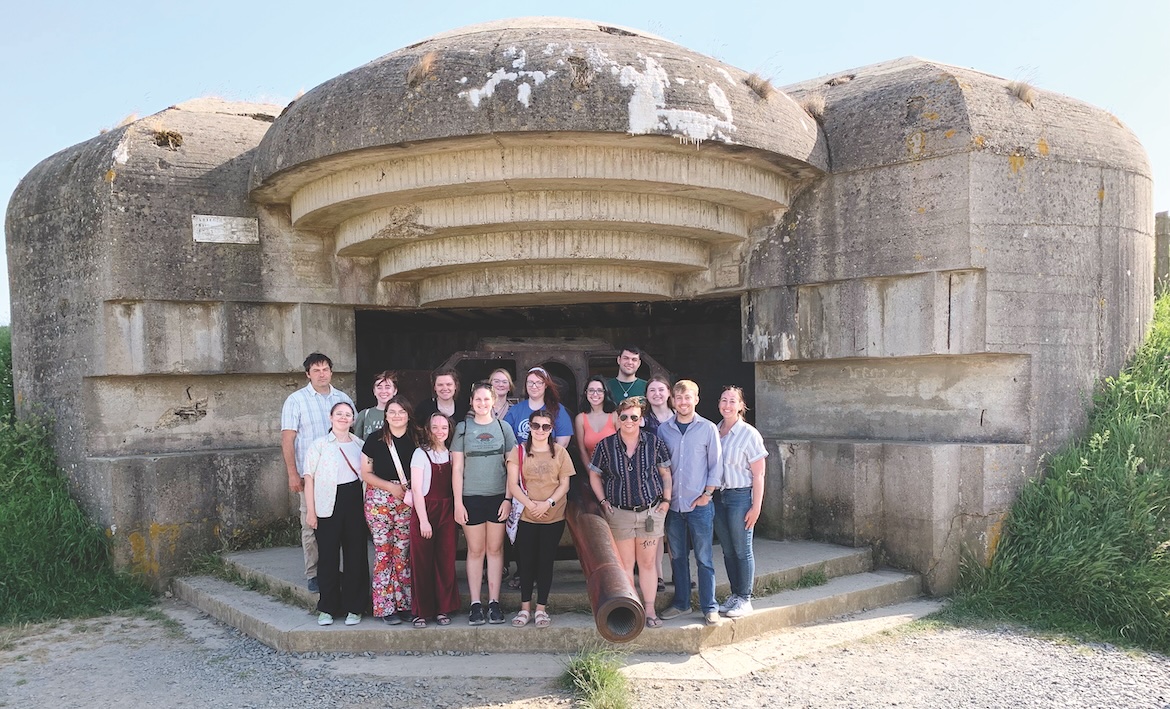
2022 group at Longues-sur-Mer Battery
Community and Student Impact
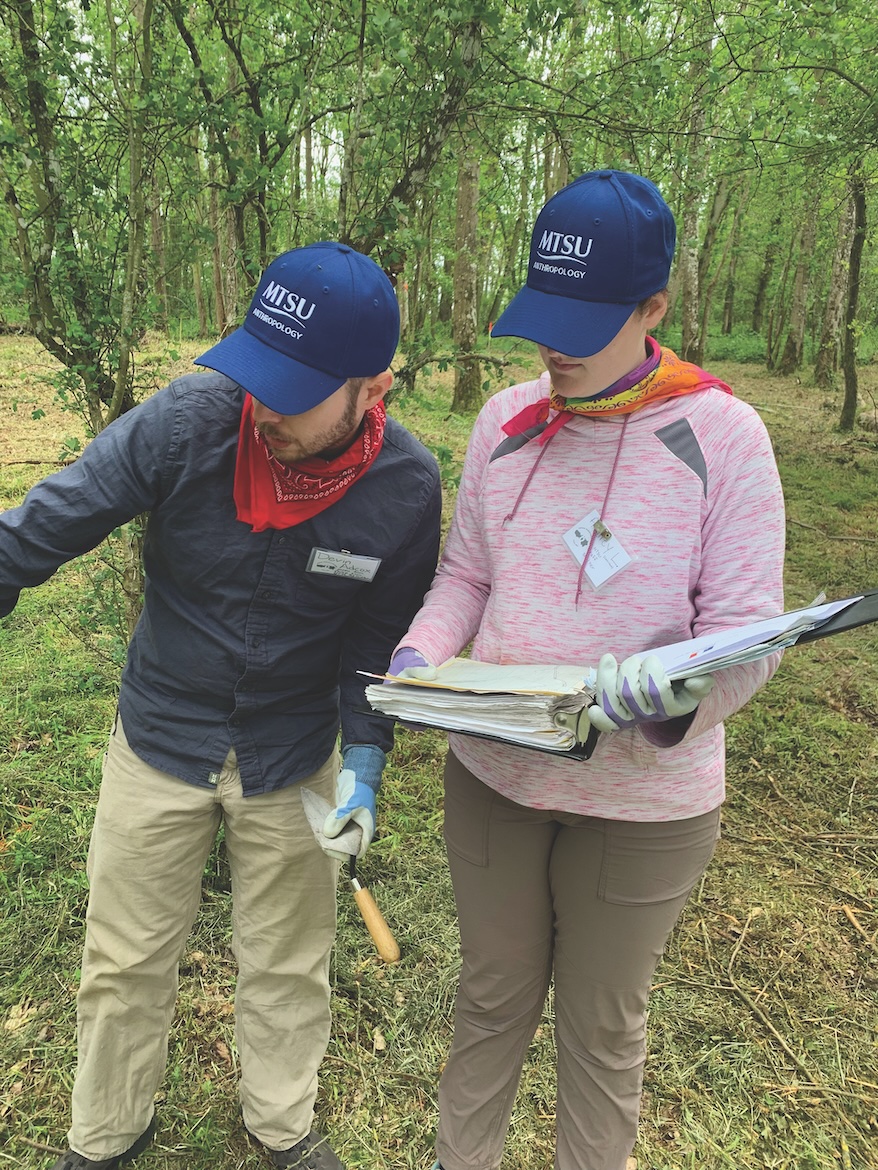
Devin Adcox (l) and Audrey Lauerhass in 2023
Both the 2022 and 2023 teams of students and volunteers built lasting relationships within the community. Each summer, the team was visited in the field by local government officials, local history enthusiasts, and even eyewitnesses of the crash. Students developed an understanding of the impact that the crash continues to have upon the town.
The program also has provided ways for alumni to stay engaged with research at MTSU while pursuing graduate degrees elsewhere. Devin Adcox (’19) served as a field assistant for the 2022 and 2023 field seasons while he was working to complete a master’s degree in Anthropology at California State University–Chico. This fall, Adcox started his doctoral program at the University of Tennessee. Connections like these are vital as MTSU continues building its community of scholars.
Current student Audrey Lauerhass participated in the 2022 field season and served in a professional capacity as a field assistant for the 2023 season. Lauerhass is a double-major in Anthropology and Forensic Science, and she will be completing her Honors thesis in December. She used data collected in the 2021 and 2022 field seasons to create predictive maps to guide excavation strategies in the 2023 season. Her efforts allowed for the most efficient use of time and resources during the summer.
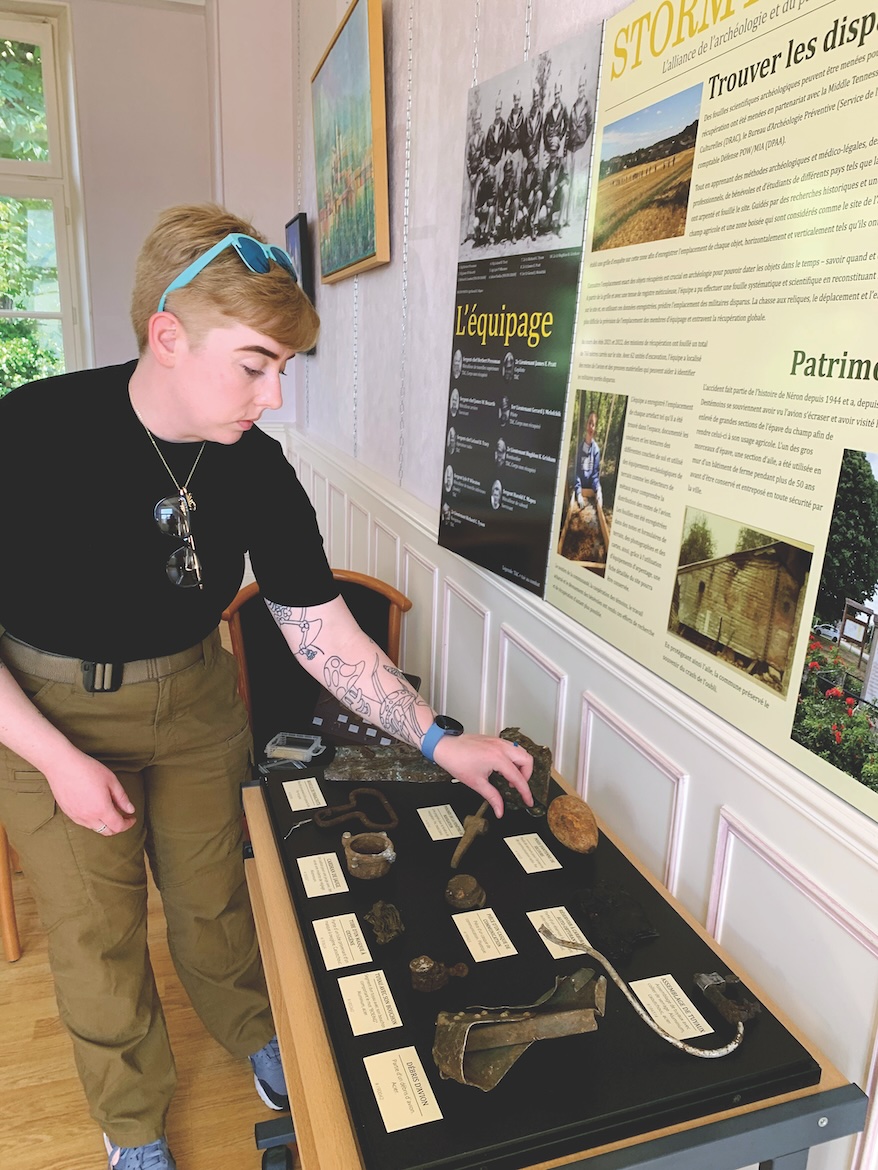
Everette Merian with community display
This interdisciplinary project demonstrates the breadth of creativity and science that is the hallmark of liberal arts education. Everett Merian (’23) decided to use their field experience from the 2022 season and community connection to create an informational display for the town hall. Merian’s creative talent for design and Fracchia’s experience in public archaeology resulted in the construction of a display that included information about the history of World War II and the crash, as well as non-evidentiary artifacts recovered from the crash site.
The display was completed as part of Merian’s MTSU Honors thesis project and was unveiled in the town hall at a reception hosted by the mayor’s office during the 2023 field season.
Saul’s experience as a forensic anthropologist and Fracchia’s expertise in historic archaeology have allowed them to build an educational experience that lets students explore careers in forensic archaeology and international humanitarian service. They have encouraged students to look beyond the artifacts and field methods and consider the impact the work has on the local community and the collective memory and memorialization of the events of World War II.
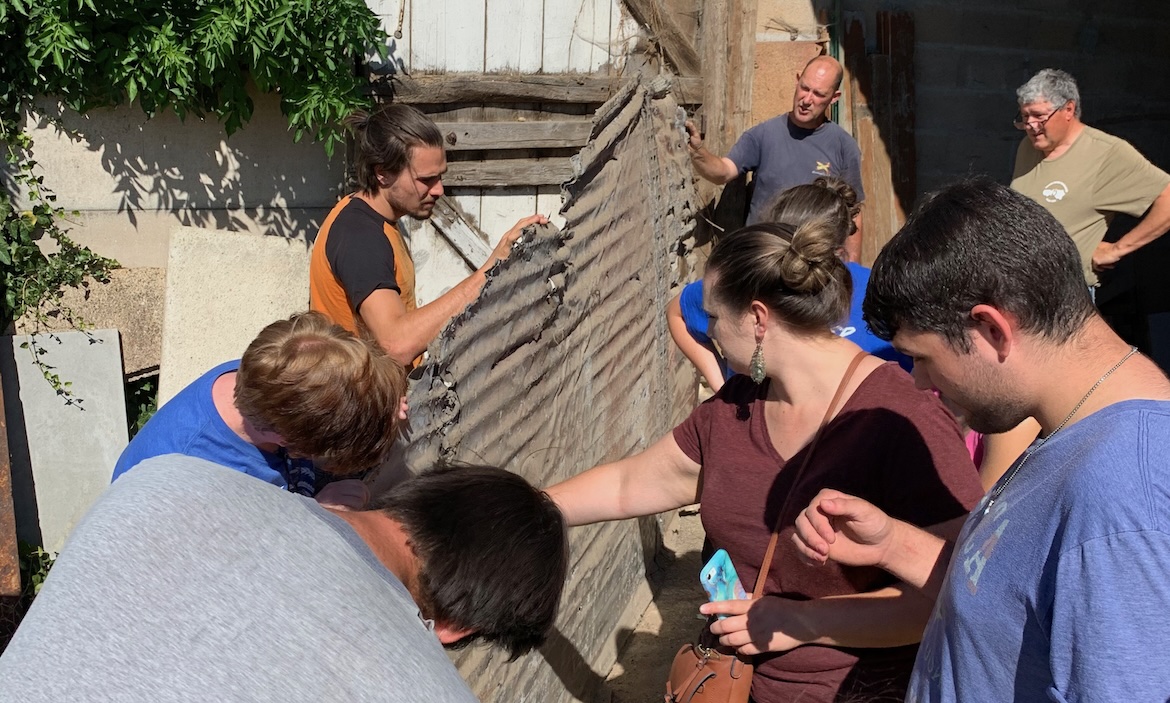
2022 group examining WWII aircraft wing

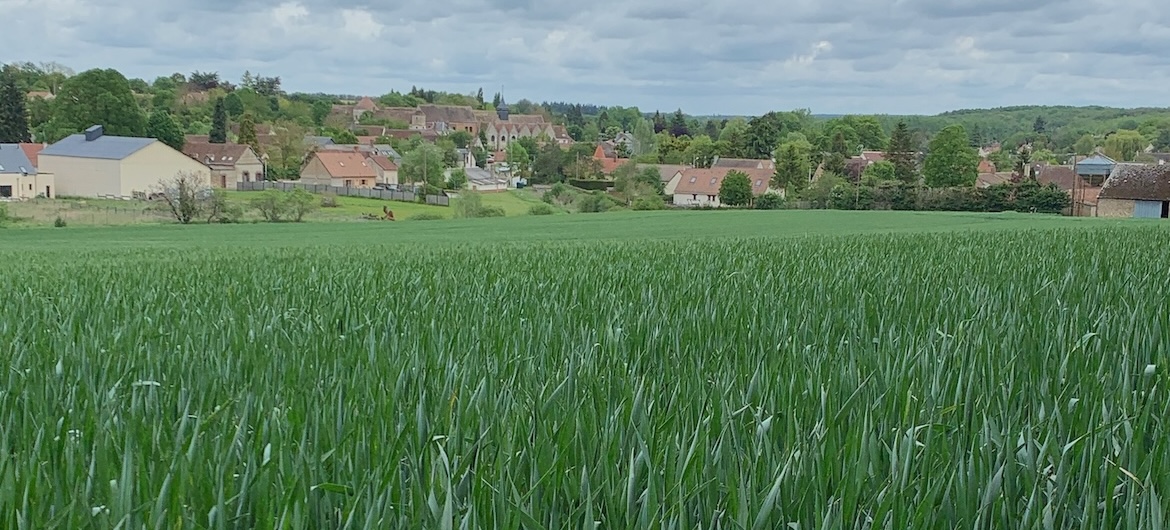
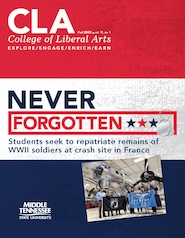
COMMENTS ARE OFF THIS POST